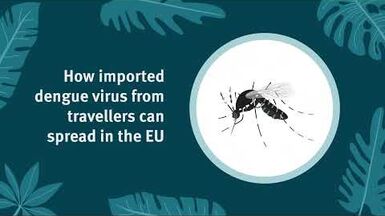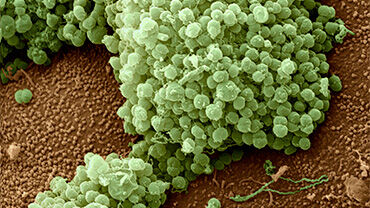Rickettsia typhi and rickettsia felis in Xenopsylla cheopis and Leptopsylla segnis parasitizing rats in CyprusArchived
This study is part of a survey that uses rats and their fleas as indicators of the presence of zoonotic agents in Cyprus. During the three-year survey (2001–2003), fleas were collected from 622 wild rats captured at 51 localities in all five prefectures of Cyprus.
Christos Christou , Anna Psaroulaki , Maria Antoniou , Pavlos Toumazos , Ioannis Ioannou, Apostolos Mazeris , Dimosthenis Chochlakis , and Yannis Tselentis, Am J Trop Med Hyg, 2010;83(6):1301-4.
This study is part of a survey that uses rats and their fleas as indicators of the presence of zoonotic agents in Cyprus. During the three-year survey (2001–2003), fleas were collected from 622 wild rats captured at 51 localities in all five prefectures of Cyprus. Rickettsia typhi, the causative agent of murine typhus, was detected in Xenopsylla cheopis (4%) and in Leptopsylla segnis (6.6%). Rickettsia felis was detected in X. cheopis (1%). This is the first report of R. typhi in X. cheopis and L. segnis from rats in Cyprus, and the first report of R. felis in X. cheopis in Europe. The role of fleas (mainly X. cheopis ) was confirmed in the epidemiologic cycle of murine typhus in Cyprus by interrelation of current results with those of previous studies.
ECDC comment: In this study, the geographic distribution of fleas coincided with the geographic distribution of the pathogens they can harbor, emphasizing the potential risk of flea-transmitted infections in Cyprus. Public Health Significance:The first R. typhi infections were described in Cyprus in 1996, followed by an outbreak in the same area in 1997. The true incidence of murine typhus in Cyprus is unknown and this study adds evidence of the occurrence of R. typhi and murine typhus infections in the country. This is of importance for clinicians seeing ill returned travelers from this touristic island, as well as from similar environments in the Mediterranian basin.
This paper was selected by Dr. Helena H. Askling (helena.hervius-askling@karolinska.se) from Stockholm, Sweden on behalf of EuroTravNet. EuroTravNet, the European Travel Medicine Network, is an ECDC collaborative network.







